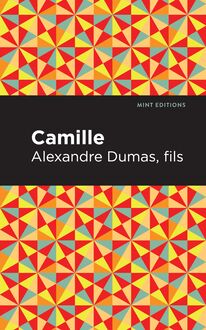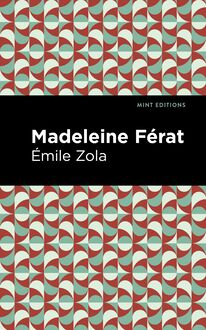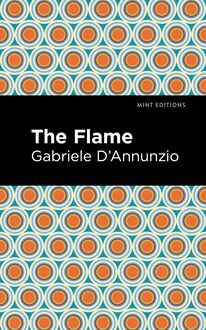-
 Univers
Univers
-
 Ebooks
Ebooks
-
 Livres audio
Livres audio
-
 Presse
Presse
-
 Podcasts
Podcasts
-
 BD
BD
-
 Documents
Documents
-
- Cours
- Révisions
- Ressources pédagogiques
- Sciences de l’éducation
- Manuels scolaires
- Langues
- Travaux de classe
- Annales de BEP
- Etudes supérieures
- Maternelle et primaire
- Fiches de lecture
- Orientation scolaire
- Méthodologie
- Corrigés de devoir
- Annales d’examens et concours
- Annales du bac
- Annales du brevet
- Rapports de stage
La lecture à portée de main
Vous pourrez modifier la taille du texte de cet ouvrage
Découvre YouScribe en t'inscrivant gratuitement
Je m'inscrisDécouvre YouScribe en t'inscrivant gratuitement
Je m'inscrisEn savoir plus
Vous pourrez modifier la taille du texte de cet ouvrage
En savoir plus

Description
Madeleine Férat (1868) is a novel by French author Émile Zola. Following the success of his third novel, Thérèse Raquin (1867), Zola published Madeleine Férat to lukewarm critical acclaim. Intent on exploring taboo and the lives of people on the edge of society, Zola crafts a narrative capable of illuminating the human condition while humanizing those typically disdained by the literary elite. In 1920, Madeleine Férat was adapted into an Italian silent film starring Francesca Bertini. To anyone who makes their acquaintance, Guillaume and Madeleine have a storybook romance—marriage, a child, the inheritance of a beautiful villa and a sizeable fortune; these things and more bless their family from the start and promise a lengthy, healthy relationship. As Madeleine adjusts to the comforts and curiosities of married life, she finds herself emboldened to share aspects of her personal history with Guillaume. One night, she decides to tell him a story involving a former lover, sparing no details on their sexual relationship. To her horror, she discovers that her lover was once Guillaume’s best friend. Rather than amusing her husband, she shatters their idyllic existence, plunging him into doubt and despair while exposing herself to his hidden vindictive side. Madeleine Férat is a story of love, secrets, and the false promise of modern life. Written at the very beginning of Zola’s career, it shows the innerworkings of a young mind interested in subjects too often ignored by writers, a mind whose guiding principle is truth and truth alone. With a beautifully designed cover and professionally typeset manuscript, this edition of Émile Zola’s Madeleine Férat is a classic work of French literature reimagined for modern readers.
Sujets
Informations
| Publié par | Mint Editions |
| Date de parution | 21 juin 2021 |
| Nombre de lectures | 1 |
| EAN13 | 9781513287188 |
| Langue | English |
| Poids de l'ouvrage | 1 Mo |
Informations légales : prix de location à la page 0,0500€. Cette information est donnée uniquement à titre indicatif conformément à la législation en vigueur.
Extrait
Madeleine Férat
A Realistic Novel
Émile Zola
Madeleine Férat: A Realistic Novel was first published in 1889.
This edition published by Mint Editions 2021.
ISBN 9781513282169 | E-ISBN 9781513287188
Published by Mint Editions ®
minteditionbooks .com
Publishing Director: Jennifer Newens
Design & Production: Rachel Lopez Metzger
Project Manager: Micaela Clark
Typesetting: Westchester Publishing Services
T O E DOUARD M ANET
T he day when, with an indignant voice, I undertook the defence of your talent, I did not know you. There were fools who then dared to say that we were two friends in search of scandal. Since these fools placed our hands one in the other, may our hands remain for ever united. The crowd willed that you should have my friendship; this friendship is now complete and durable, and as a public proof of it, I dedicate to you this book.
— É MILE Z OLA
C ONTENTS I II III IV V VI VII VIII IX X XI XII XIII
I
William and Madeleine got off at Fontenay station. It was a Monday, and the train was almost empty. Five or six fellow-passengers, inhabitants of the district, who were returning home, presented themselves at the platform-exit with the two young people, and dispersed each in his own direction, without bestowing a glance on the surroundings, like folks in a hurry to get home.
When they were outside the station, the young man offered his arm to the young woman, as though they had not left the streets of Paris. They turned to the left, and went at a leisurely pace up the magnificent avenue of trees which extends from Sceaux to Fontenay. As they ascended, they watched the train at the bottom of the slope start again on its journey with laboured and deep-drawn puffs.
When it was lost to sight among the trees, William turned towards his companion, and said to her with a smile:
“I told you I am not acquainted with the neighbourhood, and I hardly know for certain where we are going to.”
“Let us take this path,” answered Madeleine, simply, “and then we shall not have to go through the streets of Sceaux.”
They took the lane to Champs-Girard. Here, there is a sudden gap in the line of trees bordering the wide avenue which enables one to get a view of the rising ground of Fontenay; down in the bottom, there are gardens and square meadows where huge clumps of poplars rise up straight and full of vigour; then, up the slope, there are cultivated fields, dividing the surface of the country into brown and green tracts, and, right at the top, on the very edge of the horizon, you can catch a glimpse through the trees of the low white houses of the village. Towards the end of September, the sun, as it dips down between four and five o’clock, makes this bit of nature lovely. The young couple, who were alone in the path, stopped instinctively before this nook of landscape, whose dark green—almost black—verdure was hardly yet tinged with the first golden hues of autumn.
They were still arm in arm. There was between them that indefinable constraint—the result of a newly-formed intimacy—which has made too rapid progress. When they came to think that they had only known each other for eight days at the most, they experienced a sort of uneasy feeling at finding themselves thus alone in presence of each other, in the open fields, like happy lovers. Feeling themselves still strangers and compelled to treat one another as comrades, they hardly dared to look at one another; they conversed only in hesitating sentences, as if from fear of giving mutual offence unwittingly. Each was for the other the unknown—the unknown which terrifies and yet attracts. In the lagging walk like that of lovers, in their pleasant and light words, even in the smiles which they exchanged the moment their eyes met, one could read the uneasiness and embarrassment of two beings whom hazard has unceremoniously brought together. Never had William thought he would suffer so much from his first adventure, and he waited its end with real anguish.
They had begun to walk on again, casting glances on the hill-side, their fits of silence only broken by intermittent conversation, in which they gave vent to none of their real thoughts, but simply to pass remarks about the trees, the sky, or the landscape which was spread out before them.
Madeleine was approaching her twentieth year. She had on a very simple dress of grey material set off with a trimming of blue ribbons; and on her head of gorgeous bright red hair, which seemed to emit a golden gleam and was twisted and done up behind in an enormous chignon, she wore a little round straw hat. She was a tall, handsome girl, and her strong, supple limbs gave promise of rare energy. Her face was characteristic. The upper part was firm, almost masculine in its sternness; there were no soft lines in the forehead: the temples, the nose, and cheekbones were angular, and gave to the face the cold, hard appearance of marble; in this severe setting were large eyes, of a dull grey green colour, yet at times a smile would impart to them an intelligent brightness. The lower part of the face, on the contrary, was of exquisite delicacy: there was a voluptuous softness in the cheeks, and in the corners of the mouth, where nestled two light dimples; the chin was double, the upper one small and nervous, the lower one soft and round; the features were here no longer hard and stiff, they were plump, lively, and covered with a silky down; they had an infinite variety of expression and a charming delicacy where the down was wanting: in the centre the lips bright and rosy, though somewhat thick, seemed too red for this fair face, at once stern and childish.
This strange physiognomy was in fact a combination of sternness and childishness. When the upper part was at rest, when the lips were contracted in moments of thought or anger, one could see nothing but the harsh forehead, the nervous outline of the nose, the dull eyes, the firm, strong features. Then, the moment a smile relaxed the mouth, the upper part seemed to soften, leaving nothing visible, but the soft lines of the cheeks and the chin. It might be called the smile of a little girl on the face of a grown woman. The complexion was of soft, transparent whiteness, with just a touch or two of red about the angles of the temples, while the veins gave a soft blue tinge to this satin-like skin.
Often would Madeleine’s ordinary expression, an expression of stern pride, melt suddenly into a look of unspeakable tenderness, the tenderness of a weak and conquered woman. One phase of her being had never developed beyond childhood. As she followed the narrow path leaning on William’s arm, she had serious moods which made the young fellow feel peculiarly dejected, while at times she would be subject to sudden fits of unconstraint and involuntary submissiveness which restored him to hope. By her firm and somewhat measured tread one saw at once that she had ceased to be a young girl.
William was five years older than Madeleine. He was tall and thin and of aristocratic bearing. His long face, with its sharp features, would have been ugly, but for the purity of his complexion and the loftiness of his brow. His whole aspect betokened the intelligent and yet enfeebled descendant of a strong race. At times, he would be seized with a sudden nervous shudder and seem as timid as a child. Slightly bent, he spoke with hesitating gestures, scanning Madeleine with his eyes before opening his lips. He was afraid of displeasing her and trembled lest his person, his attitude, or his voice should be disagreeable to her.
Always distrustful of himself, he appeared humble and fawning. Yet, when he thought himself slighted, he would draw himself up in a burst of pride. It was in this pride that his strength lay. He would perhaps have been guilty of acts of cowardice, had there not been in him an innate proudness, a nervous susceptibility which made him resist everything which hurt his finer feelings. He was one of those beings with tender and deep emotions who feel a poignant need of love and tranquillity, who willingly allow themselves to be lulled into an eternal peacefulness; these beings, with the sensitiveness of a woman, easily forget the world for the retreat of their own heart, in the certitude of their own nobleness, the moment the world entangles them in its shame and misery. If William forgot himself in Madeleine’s smiles, if he felt an exquisite delight in surveying her pearly complexion, there would come at times, unconsciously, a curl of disdain on his lips, when his young companion cast on him a cold, almost deriding glance.
The young couple had turned the bend in the road to Champs-Girard, and were now in a lane which extends with hopeless monotony between two grey walls. They hastened on in order to get out of this narrow passage. Then they continued their walk across fields where the footpath was hardly defined. They passed by the foot of the hill where the enormous Robinson chestnut-trees grow, and arrived at Aulnay. This quick walk had heated their blood. The genial warmth of the sun dispelled their restraint, in the free air which blew on their faces from the fresh warm wind. The tacit state of warfare in which they alighted from the train had gradually given place to the familiarity of comrades. They were forgetting their previous stiffness: the country was filling them with such a feeling of comfort, that they no longer thought of eyeing one another or standing on their guard.
At Aulnay they stopped for a moment in the shade of the big trees, under which it is always delightfully cool. They had been warm in the sun; they now felt the delicious coolness of the leaves as they fell on their shoulders.
“Hang it, if I know where we are,” exclaimed William after they had recovered their breath. “Do people eat, I wonder, in this country?”
“Yes, no fear,” replied Madeleine gaily, “we shall be at table in half-an-hour. Come this way.”
She led
-
 Univers
Univers
-
 Ebooks
Ebooks
-
 Livres audio
Livres audio
-
 Presse
Presse
-
 Podcasts
Podcasts
-
 BD
BD
-
 Documents
Documents
-
Jeunesse
-
Littérature
-
Ressources professionnelles
-
Santé et bien-être
-
Savoirs
-
Education
-
Loisirs et hobbies
-
Art, musique et cinéma
-
Actualité et débat de société
-
Jeunesse
-
Littérature
-
Ressources professionnelles
-
Santé et bien-être
-
Savoirs
-
Education
-
Loisirs et hobbies
-
Art, musique et cinéma
-
Actualité et débat de société
-
Actualités
-
Lifestyle
-
Presse jeunesse
-
Presse professionnelle
-
Pratique
-
Presse sportive
-
Presse internationale
-
Culture & Médias
-
Action et Aventures
-
Science-fiction et Fantasy
-
Société
-
Jeunesse
-
Littérature
-
Ressources professionnelles
-
Santé et bien-être
-
Savoirs
-
Education
-
Loisirs et hobbies
-
Art, musique et cinéma
-
Actualité et débat de société
- Cours
- Révisions
- Ressources pédagogiques
- Sciences de l’éducation
- Manuels scolaires
- Langues
- Travaux de classe
- Annales de BEP
- Etudes supérieures
- Maternelle et primaire
- Fiches de lecture
- Orientation scolaire
- Méthodologie
- Corrigés de devoir
- Annales d’examens et concours
- Annales du bac
- Annales du brevet
- Rapports de stage


















